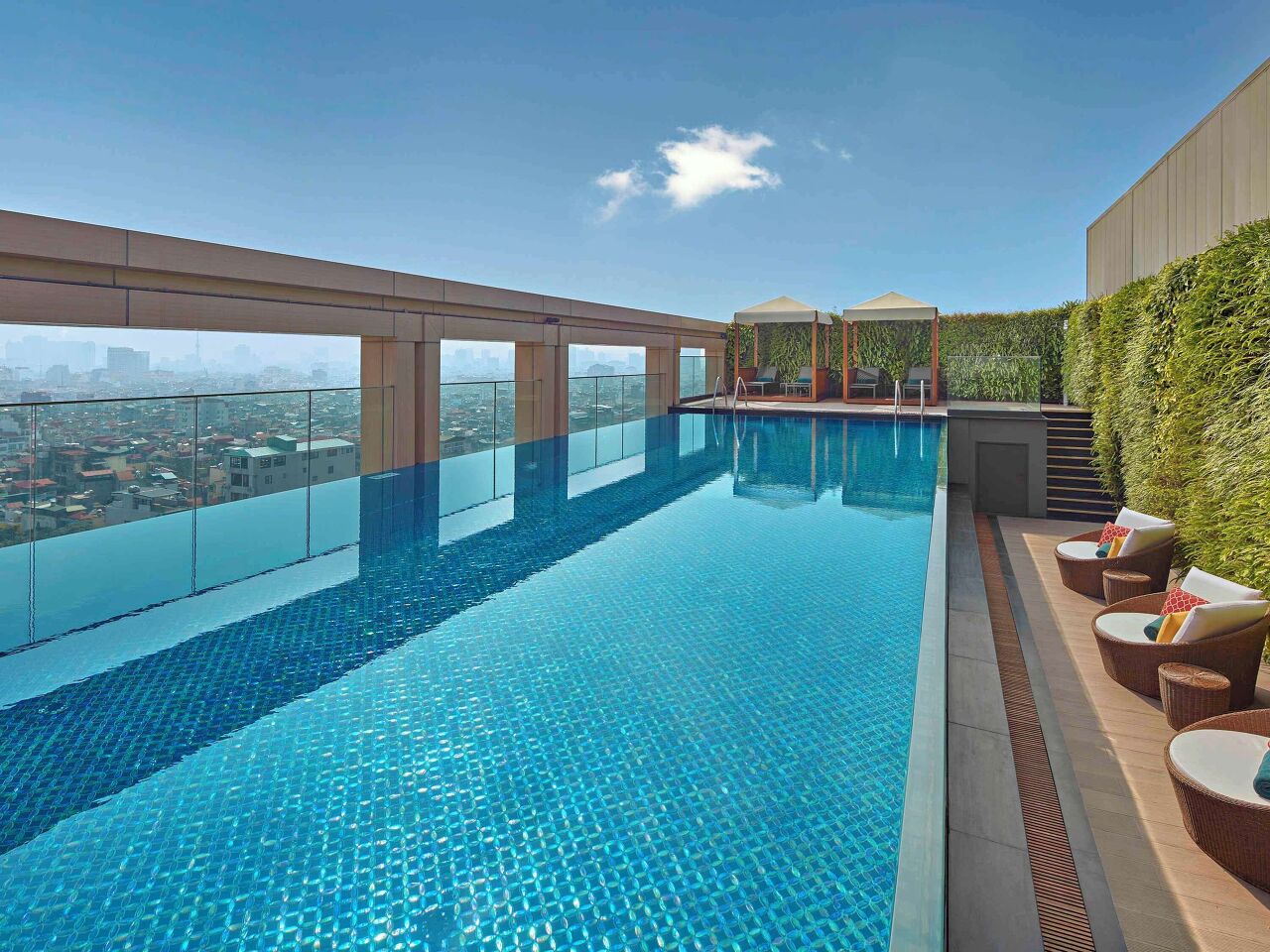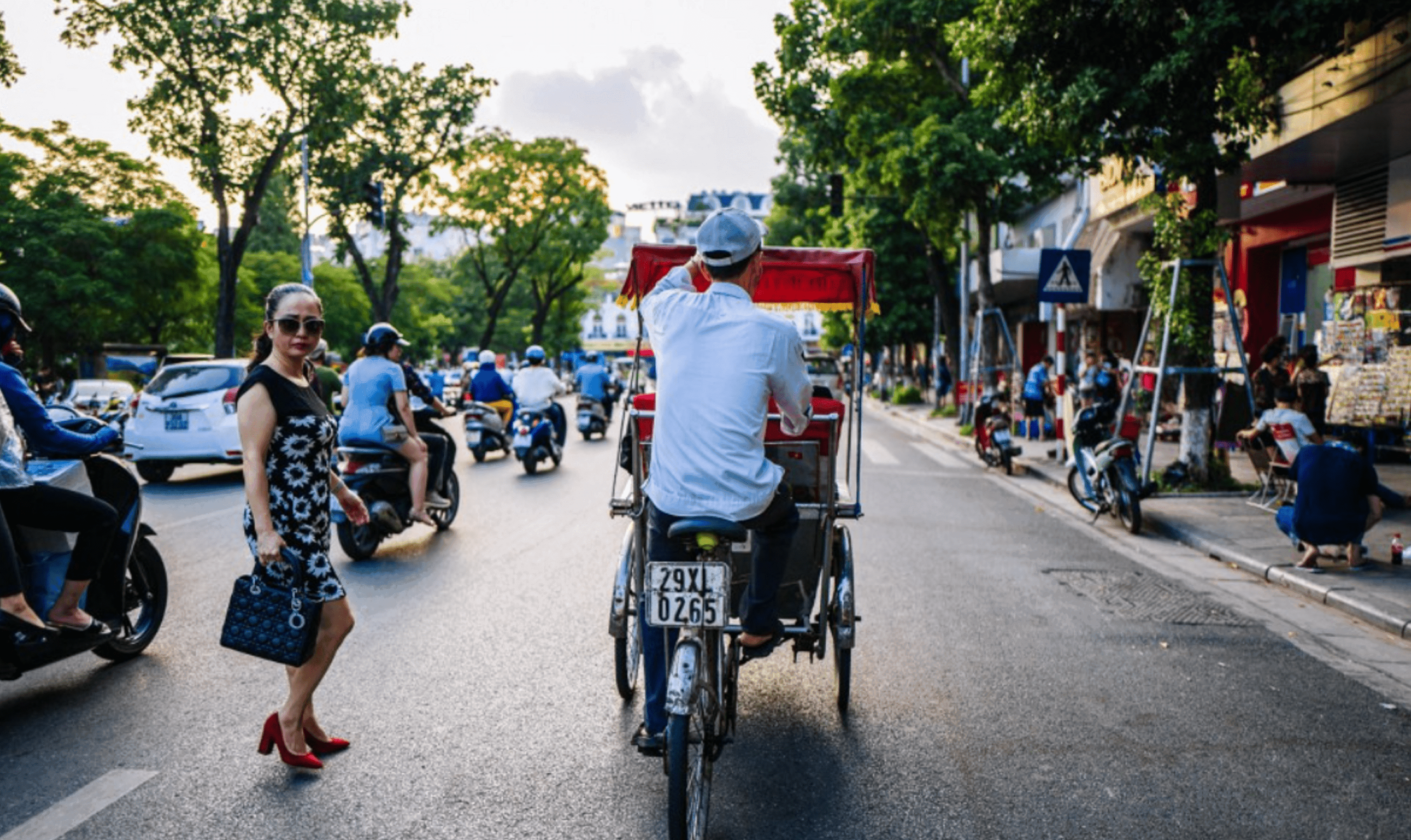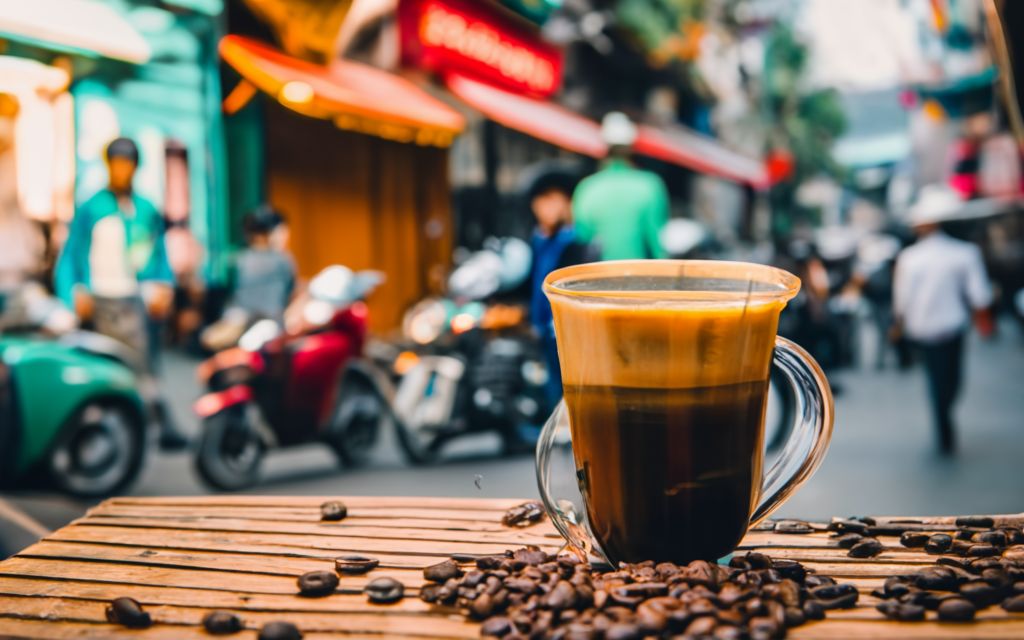Why we recommend Vietnam homestay
Culture
5 minutes
Mar 9, 2024
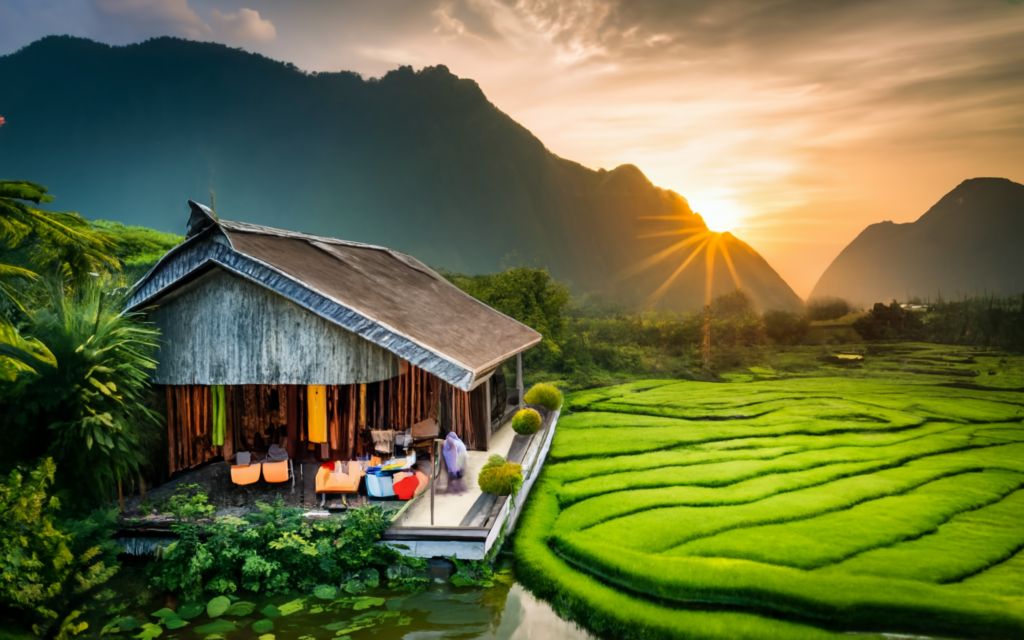
One popular form of accommodation in Vietnam is a homestay with an ethnic minority. You can experience living with local residents in Vietnam in their homes. Homestays are popular in Vietnam's ethnic minority villages. However, you can also experience homestays in larger cities such as Hanoi or Dalat. Until recently, foreign tourists from ethnic minorities were not allowed to be accommodated (except for some tourist destinations such as Sapa that allow foreign tourists to visit), but this is gradually changing.
What is a homestay?
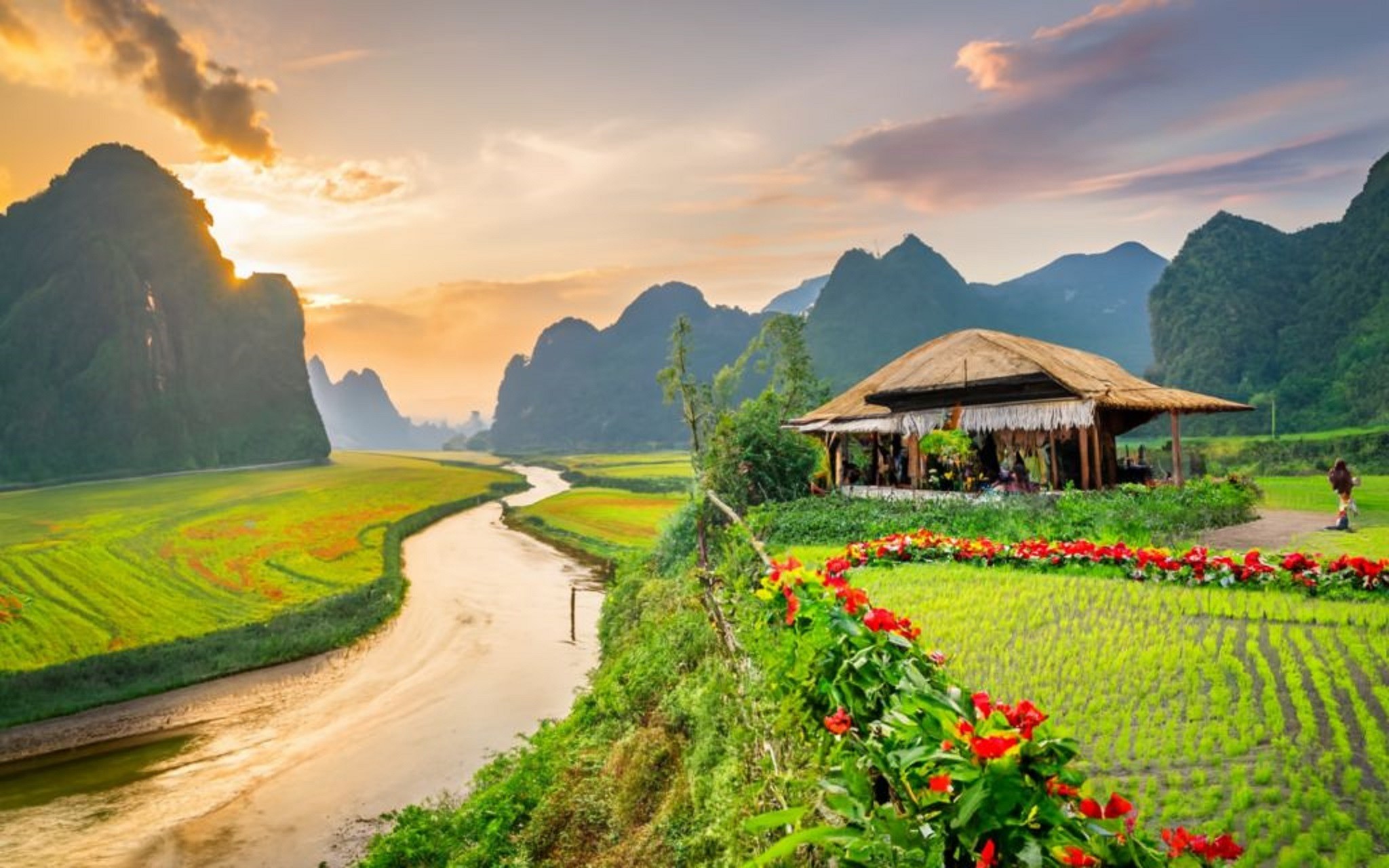
As the name suggests, a homestay is spending a night in someone's home. There are different types of homestays
[Real homestay in an ethnic minority village]
Most houses are made of wood and bamboo
simple sanitary facilities
No Wi-Fi
food cooked over a campfire
There is no heating
Wooden bed (including warm blanket)
A true village life experience
Location away from tourist areas
Traditional clothing and old habits of village people
[Homestay in tourist village]
A house can be built with wood, but it can also be built with bricks
A new type of custom home
Wi-Fi is available in some locations
European-style shower room and toilet
Some houses have heating
Food cooked in a typical kitchen
A slightly disappointing traditional experience
They may be from an ethnic minority, but they don't act like it. (Lack of traditional clothing and customs.)
[Modern Homestay]
modern brick house
Newly built or renovated homes
wifi internet
European-style shower room and toilet
Food is prepared in a regular kitchen.
Location in the middle of a tourist town, region or even city
The staff are usually Vietnamese.
Why we recommend homestay

To legally offer a homestay, you must register your homestay. To register, your home must have a flush toilet, be clean, tidy and, most importantly, hygienic. Hosts must undergo food hygiene training and pass an exam.
However, not all homestays are registered. Therefore, this is not guaranteed.
This may make your homestay experience feel less authentic, but these rules and adjustments will improve your satisfaction with your stay.
Despite the changes, ethnic homestays are still simple accommodations. The house is just a hut, there is no natural light, the mattress is thin, the toilet is not attached to the house, and there is no soundproofing. If you don't like bugs and spiders, a homestay might not be for you.
Why we recommend homestay

The reasons for staying in a real homestay in an ethnic village have everything to do with a unique experience. If you want to learn about the daily life of ethnic minorities, homestay is the best option. Taste traditional food from ethnic minorities. You can also chat with your host and drink traditional alcohol together. Stay in the mountains or among the rice terraces. Of course, there is no problem without luxury and comfort.
Staying with an ethnic minority family gives you insight into their daily lives. There are more than 50 ethnic groups, all with their own unique languages, traditions and clothing. In Vietnam, it is common for two generations to live in the same house, so you will meet grandparents, parents and grandchildren. They have often lived in a particular area for generations and know everything about the area and culture.
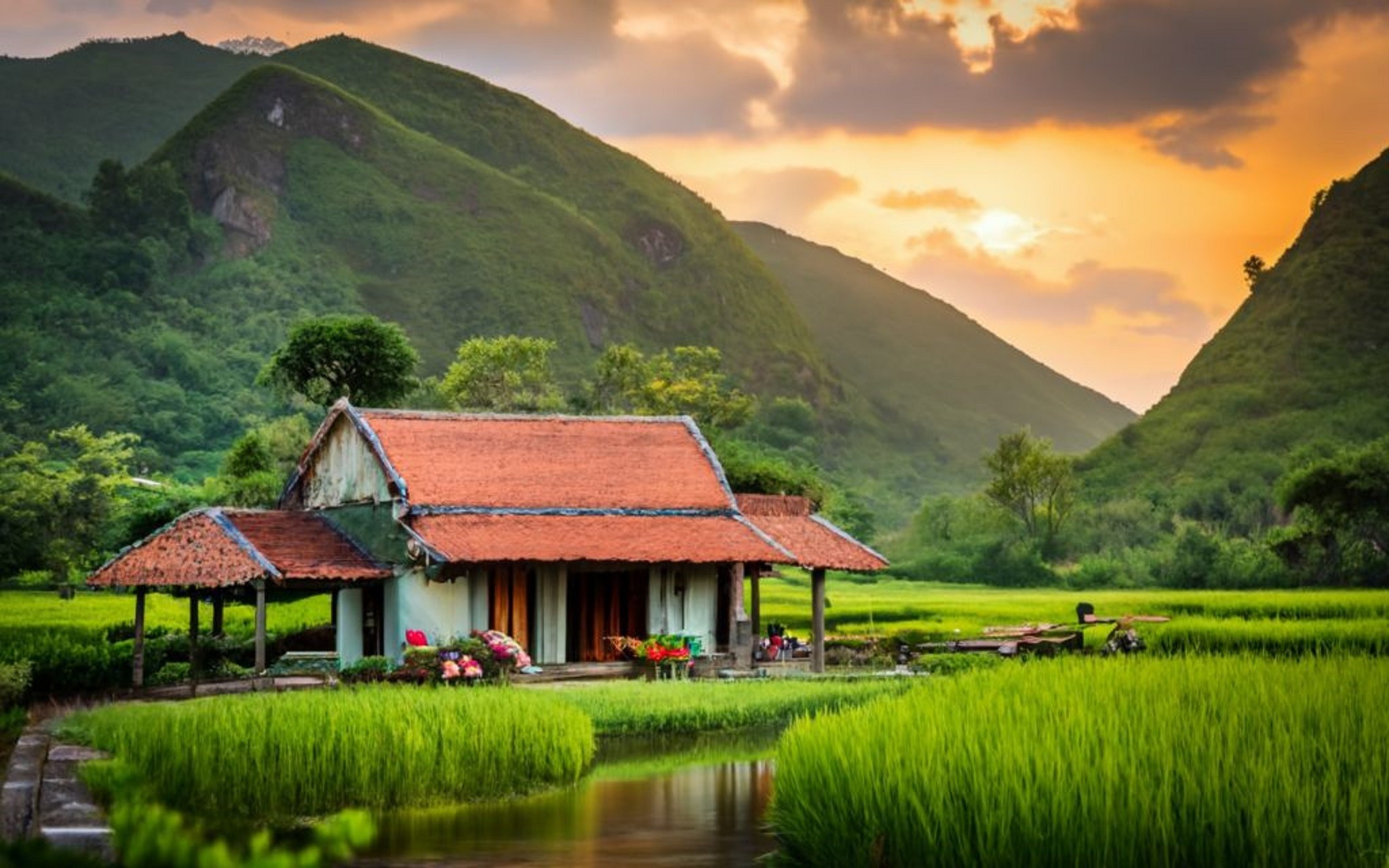
Homestays usually offer different kinds of activities such as guided treks, herbal baths, cooking classes, cultural performances, market visits and other activities. Your host can help you with things like renting a motorcycle or arranging transportation to your next destination.
In addition to cultural experiences, you can stay in homestays and continue walking from village to village. Many homestays in Vietnam are located right in some of Vietnam's most beautiful landscapes, close to breathtaking mountains, beautiful rice fields or amazing waterfalls.
A final reason to stay in a homestay is because you can meet local people from different professions rather than a large hotel chain. In addition to your host family, you can get help and meet people from various professions, including farmers, chefs, fishermen, and guides.
How to book a homestay in Vietnam
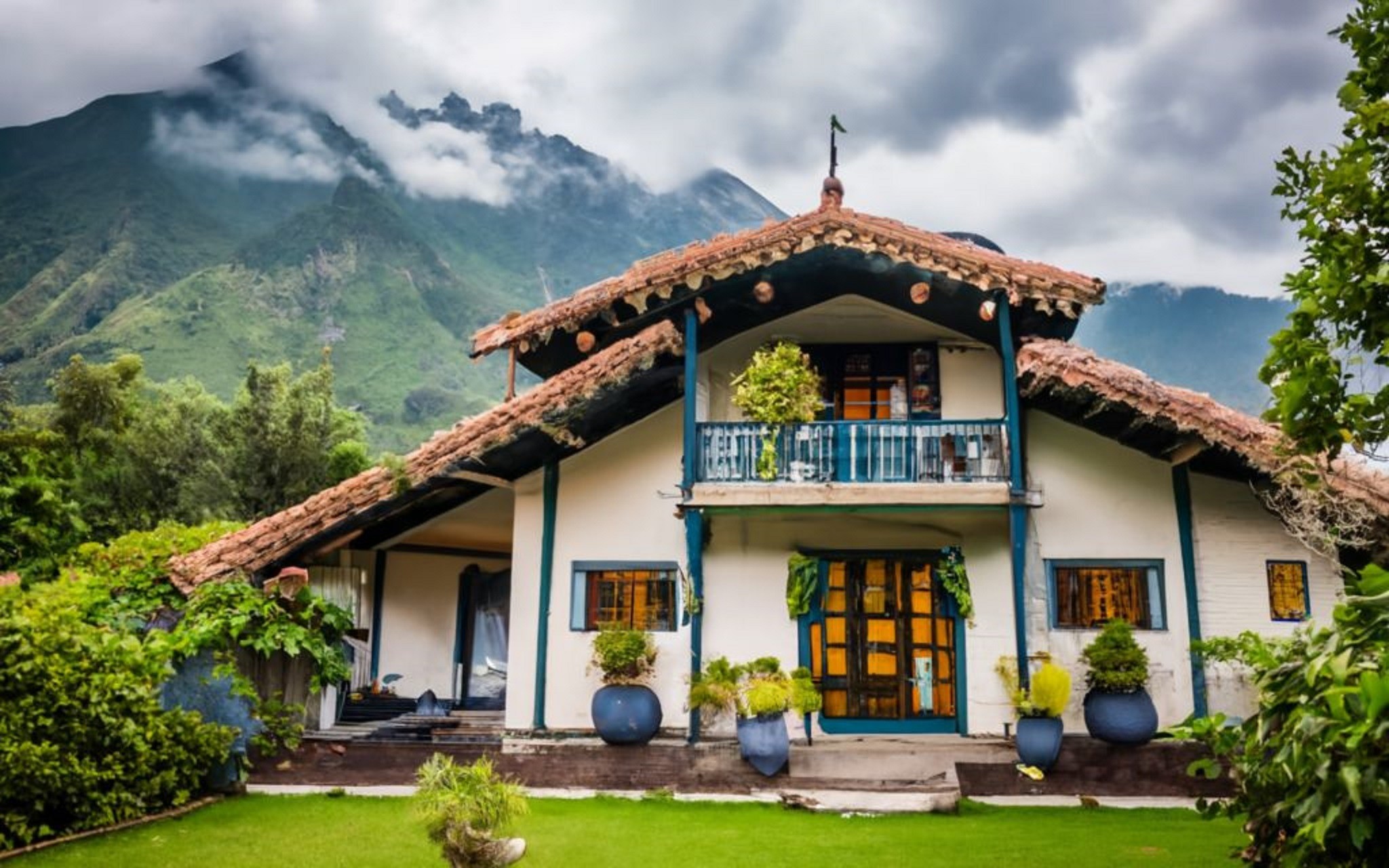
There are several ways to book a Vietnam homestay.
The most popular way to book a homestay in Vietnam is to book a package tour. This package is very popular, especially in remote areas around Sapa, Pu Luong, Ha Giang and the Mekong Delta. The main reason for this is that these places are remote and inaccessible to the average traveler, but package tours include transportation to and from these places. They often also include some great local experiences, such as visiting local markets, cooking classes and bike rides, which can be difficult to organize on your own due to language barriers. Multi-day trekking tours often include an overnight stay in a homestay.
All the modern homestays are on websites like booking.com, agoda and airbnb, but these days you can find many traditional homestays on these websites too.
If you go out in person, you can ask. When walking around town, you sometimes see signs for homestays or ask people friendly questions. Keep in mind that many people don't speak English or don't speak English at all. So, know some basic Vietnamese words.
Frequently Asked Questions About Homestay
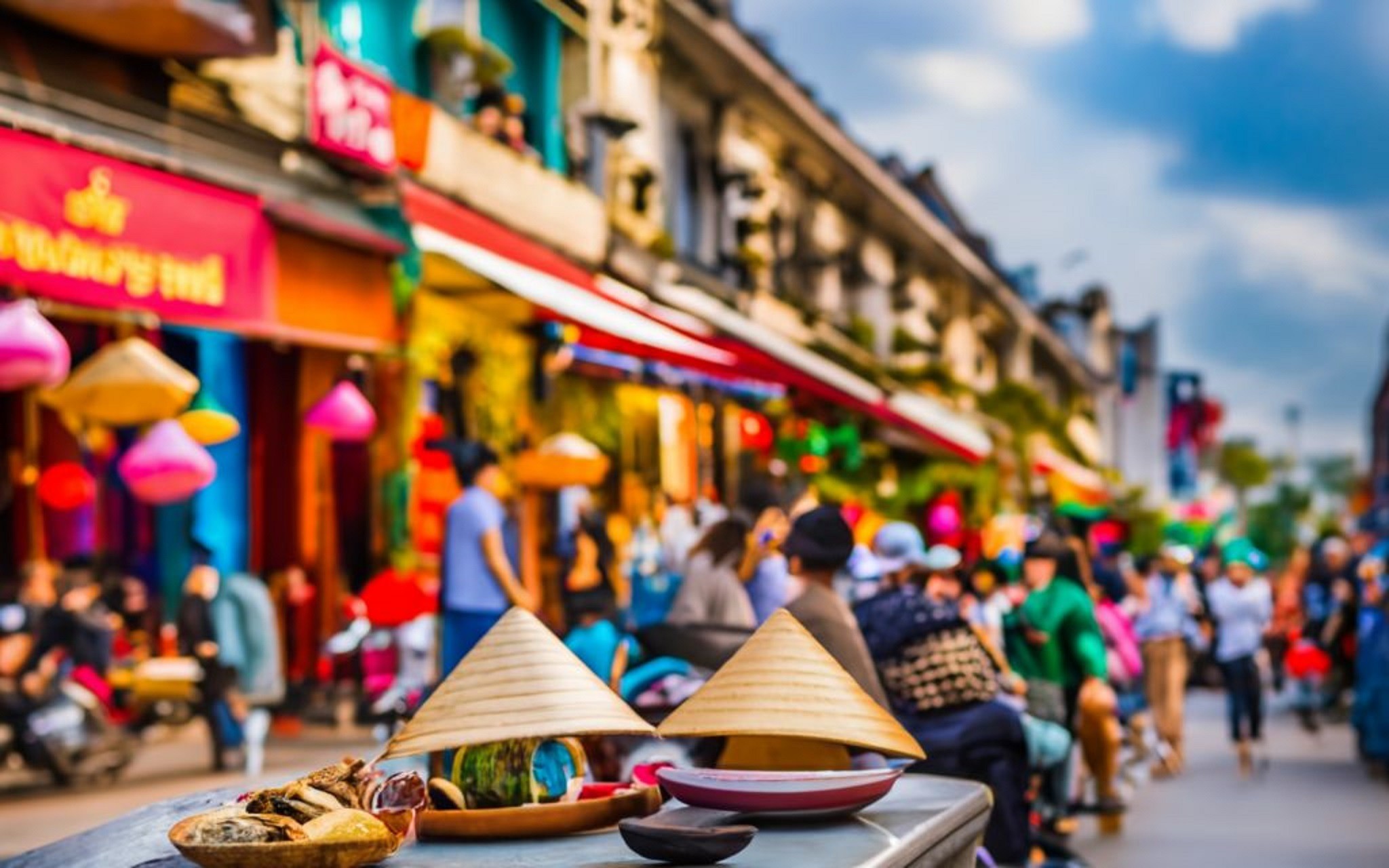
Is it okay if I don't speak Vietnamese?
In rural areas hosts rarely speak English. Sometimes, if you have a younger family member who can speak some language, or if you are included on a guided trek, the guide may be able to interpret for you. Otherwise, you'll have to get creative. You can also use your hands to speak or try using a translation app.
What are the must-have items?
If you are staying in a rural area, it is a good idea to bring mosquito repellent. If you stay in the mountains, bring something warm to sleep in as there are no heaters.
Should I bring a gift for host?
-Although it is not common for tourists to bring small gifts for their hosts, they will be very grateful. For example, you can bring fruit. Snacks for children are not recommended. This is because children do not always have access to good dental care.
What's included?
Depending on the location, breakfast is usually served and lunch and/or dinner can be added. Coffee and tea are usually free. Bed sheets, mosquito nets, bath towels, soap, shampoo.
Table of contents
Why we recommend Vietnam homestay
Culture
5 minutes
Mar 9, 2024

One popular form of accommodation in Vietnam is a homestay with an ethnic minority. You can experience living with local residents in Vietnam in their homes. Homestays are popular in Vietnam's ethnic minority villages. However, you can also experience homestays in larger cities such as Hanoi or Dalat. Until recently, foreign tourists from ethnic minorities were not allowed to be accommodated (except for some tourist destinations such as Sapa that allow foreign tourists to visit), but this is gradually changing.
What is a homestay?

As the name suggests, a homestay is spending a night in someone's home. There are different types of homestays
[Real homestay in an ethnic minority village]
Most houses are made of wood and bamboo
simple sanitary facilities
No Wi-Fi
food cooked over a campfire
There is no heating
Wooden bed (including warm blanket)
A true village life experience
Location away from tourist areas
Traditional clothing and old habits of village people
[Homestay in tourist village]
A house can be built with wood, but it can also be built with bricks
A new type of custom home
Wi-Fi is available in some locations
European-style shower room and toilet
Some houses have heating
Food cooked in a typical kitchen
A slightly disappointing traditional experience
They may be from an ethnic minority, but they don't act like it. (Lack of traditional clothing and customs.)
[Modern Homestay]
modern brick house
Newly built or renovated homes
wifi internet
European-style shower room and toilet
Food is prepared in a regular kitchen.
Location in the middle of a tourist town, region or even city
The staff are usually Vietnamese.
Vietnamese homestay laws

To legally offer a homestay, you must register your homestay. To register, your home must have a flush toilet, be clean, tidy and, most importantly, hygienic. Hosts must undergo food hygiene training and pass an exam.
However, not all homestays are registered. Therefore, this is not guaranteed.
This may make your homestay experience feel less authentic, but these rules and adjustments will improve your satisfaction with your stay.
Despite the changes, ethnic homestays are still simple accommodations. The house is just a hut, there is no natural light, the mattress is thin, the toilet is not attached to the house, and there is no soundproofing. If you don't like bugs and spiders, a homestay might not be for you.
Why we recommend homestay

The reasons for staying in a real homestay in an ethnic village have everything to do with a unique experience. If you want to learn about the daily life of ethnic minorities, homestay is the best option. Taste traditional food from ethnic minorities. You can also chat with your host and drink traditional alcohol together. Stay in the mountains or among the rice terraces. Of course, there is no problem without luxury and comfort.
Staying with an ethnic minority family gives you insight into their daily lives. There are more than 50 ethnic groups, all with their own unique languages, traditions and clothing. In Vietnam, it is common for two generations to live in the same house, so you will meet grandparents, parents and grandchildren. They have often lived in a particular area for generations and know everything about the area and culture.

Homestays usually offer different kinds of activities such as guided treks, herbal baths, cooking classes, cultural performances, market visits and other activities. Your host can help you with things like renting a motorcycle or arranging transportation to your next destination.
In addition to cultural experiences, you can stay in homestays and continue walking from village to village. Many homestays in Vietnam are located right in some of Vietnam's most beautiful landscapes, close to breathtaking mountains, beautiful rice fields or amazing waterfalls.
A final reason to stay in a homestay is because you can meet local people from different professions rather than a large hotel chain. In addition to your host family, you can get help and meet people from various professions, including farmers, chefs, fishermen, and guides.
How to book a homestay in Vietnam

There are several ways to book a Vietnam homestay.
The most popular way to book a homestay in Vietnam is to book a package tour. This package is very popular, especially in remote areas around Sapa, Pu Luong, Ha Giang and the Mekong Delta. The main reason for this is that these places are remote and inaccessible to the average traveler, but package tours include transportation to and from these places. They often also include some great local experiences, such as visiting local markets, cooking classes and bike rides, which can be difficult to organize on your own due to language barriers. Multi-day trekking tours often include an overnight stay in a homestay.
All the modern homestays are on websites like booking.com, agoda and airbnb, but these days you can find many traditional homestays on these websites too.
If you go out in person, you can ask. When walking around town, you sometimes see signs for homestays or ask people friendly questions. Keep in mind that many people don't speak English or don't speak English at all. So, know some basic Vietnamese words.
Frequently Asked Questions About Homestay

Is it okay if I don't speak Vietnamese?
In rural areas hosts rarely speak English. Sometimes, if you have a younger family member who can speak some language, or if you are included on a guided trek, the guide may be able to interpret for you. Otherwise, you'll have to get creative. You can also use your hands to speak or try using a translation app.
What are the must-have items?
If you are staying in a rural area, it is a good idea to bring mosquito repellent. If you stay in the mountains, bring something warm to sleep in as there are no heaters.
Should I bring a gift for host?
-Although it is not common for tourists to bring small gifts for their hosts, they will be very grateful. For example, you can bring fruit. Snacks for children are not recommended. This is because children do not always have access to good dental care.
What's included?
Depending on the location, breakfast is usually served and lunch and/or dinner can be added. Coffee and tea are usually free. Bed sheets, mosquito nets, bath towels, soap, shampoo.
Table of contents
Table of contents
Why we recommend Vietnam homestay
Culture
5 minutes
Mar 9, 2024

One popular form of accommodation in Vietnam is a homestay with an ethnic minority. You can experience living with local residents in Vietnam in their homes. Homestays are popular in Vietnam's ethnic minority villages. However, you can also experience homestays in larger cities such as Hanoi or Dalat. Until recently, foreign tourists from ethnic minorities were not allowed to be accommodated (except for some tourist destinations such as Sapa that allow foreign tourists to visit), but this is gradually changing.
What is a homestay?

As the name suggests, a homestay is spending a night in someone's home. There are different types of homestays
[Real homestay in an ethnic minority village]
Most houses are made of wood and bamboo
simple sanitary facilities
No Wi-Fi
food cooked over a campfire
There is no heating
Wooden bed (including warm blanket)
A true village life experience
Location away from tourist areas
Traditional clothing and old habits of village people
[Homestay in tourist village]
A house can be built with wood, but it can also be built with bricks
A new type of custom home
Wi-Fi is available in some locations
European-style shower room and toilet
Some houses have heating
Food cooked in a typical kitchen
A slightly disappointing traditional experience
They may be from an ethnic minority, but they don't act like it. (Lack of traditional clothing and customs.)
[Modern Homestay]
modern brick house
Newly built or renovated homes
wifi internet
European-style shower room and toilet
Food is prepared in a regular kitchen.
Location in the middle of a tourist town, region or even city
The staff are usually Vietnamese.
Vietnamese homestay laws

To legally offer a homestay, you must register your homestay. To register, your home must have a flush toilet, be clean, tidy and, most importantly, hygienic. Hosts must undergo food hygiene training and pass an exam.
However, not all homestays are registered. Therefore, this is not guaranteed.
This may make your homestay experience feel less authentic, but these rules and adjustments will improve your satisfaction with your stay.
Despite the changes, ethnic homestays are still simple accommodations. The house is just a hut, there is no natural light, the mattress is thin, the toilet is not attached to the house, and there is no soundproofing. If you don't like bugs and spiders, a homestay might not be for you.
Why we recommend homestay

The reasons for staying in a real homestay in an ethnic village have everything to do with a unique experience. If you want to learn about the daily life of ethnic minorities, homestay is the best option. Taste traditional food from ethnic minorities. You can also chat with your host and drink traditional alcohol together. Stay in the mountains or among the rice terraces. Of course, there is no problem without luxury and comfort.
Staying with an ethnic minority family gives you insight into their daily lives. There are more than 50 ethnic groups, all with their own unique languages, traditions and clothing. In Vietnam, it is common for two generations to live in the same house, so you will meet grandparents, parents and grandchildren. They have often lived in a particular area for generations and know everything about the area and culture.

Homestays usually offer different kinds of activities such as guided treks, herbal baths, cooking classes, cultural performances, market visits and other activities. Your host can help you with things like renting a motorcycle or arranging transportation to your next destination.
In addition to cultural experiences, you can stay in homestays and continue walking from village to village. Many homestays in Vietnam are located right in some of Vietnam's most beautiful landscapes, close to breathtaking mountains, beautiful rice fields or amazing waterfalls.
A final reason to stay in a homestay is because you can meet local people from different professions rather than a large hotel chain. In addition to your host family, you can get help and meet people from various professions, including farmers, chefs, fishermen, and guides.
How to book a homestay in Vietnam

There are several ways to book a Vietnam homestay.
The most popular way to book a homestay in Vietnam is to book a package tour. This package is very popular, especially in remote areas around Sapa, Pu Luong, Ha Giang and the Mekong Delta. The main reason for this is that these places are remote and inaccessible to the average traveler, but package tours include transportation to and from these places. They often also include some great local experiences, such as visiting local markets, cooking classes and bike rides, which can be difficult to organize on your own due to language barriers. Multi-day trekking tours often include an overnight stay in a homestay.
All the modern homestays are on websites like booking.com, agoda and airbnb, but these days you can find many traditional homestays on these websites too.
If you go out in person, you can ask. When walking around town, you sometimes see signs for homestays or ask people friendly questions. Keep in mind that many people don't speak English or don't speak English at all. So, know some basic Vietnamese words.
Frequently Asked Questions About Homestay

Is it okay if I don't speak Vietnamese?
In rural areas hosts rarely speak English. Sometimes, if you have a younger family member who can speak some language, or if you are included on a guided trek, the guide may be able to interpret for you. Otherwise, you'll have to get creative. You can also use your hands to speak or try using a translation app.
What are the must-have items?
If you are staying in a rural area, it is a good idea to bring mosquito repellent. If you stay in the mountains, bring something warm to sleep in as there are no heaters.
Should I bring a gift for host?
-Although it is not common for tourists to bring small gifts for their hosts, they will be very grateful. For example, you can bring fruit. Snacks for children are not recommended. This is because children do not always have access to good dental care.
What's included?
Depending on the location, breakfast is usually served and lunch and/or dinner can be added. Coffee and tea are usually free. Bed sheets, mosquito nets, bath towels, soap, shampoo.
Table of contents
Why we recommend Vietnam homestay
Culture
5 minutes
Mar 9, 2024

One popular form of accommodation in Vietnam is a homestay with an ethnic minority. You can experience living with local residents in Vietnam in their homes. Homestays are popular in Vietnam's ethnic minority villages. However, you can also experience homestays in larger cities such as Hanoi or Dalat. Until recently, foreign tourists from ethnic minorities were not allowed to be accommodated (except for some tourist destinations such as Sapa that allow foreign tourists to visit), but this is gradually changing.
What is a homestay?

As the name suggests, a homestay is spending a night in someone's home. There are different types of homestays
[Real homestay in an ethnic minority village]
Most houses are made of wood and bamboo
simple sanitary facilities
No Wi-Fi
food cooked over a campfire
There is no heating
Wooden bed (including warm blanket)
A true village life experience
Location away from tourist areas
Traditional clothing and old habits of village people
[Homestay in tourist village]
A house can be built with wood, but it can also be built with bricks
A new type of custom home
Wi-Fi is available in some locations
European-style shower room and toilet
Some houses have heating
Food cooked in a typical kitchen
A slightly disappointing traditional experience
They may be from an ethnic minority, but they don't act like it. (Lack of traditional clothing and customs.)
[Modern Homestay]
modern brick house
Newly built or renovated homes
wifi internet
European-style shower room and toilet
Food is prepared in a regular kitchen.
Location in the middle of a tourist town, region or even city
The staff are usually Vietnamese.
Vietnamese homestay laws

To legally offer a homestay, you must register your homestay. To register, your home must have a flush toilet, be clean, tidy and, most importantly, hygienic. Hosts must undergo food hygiene training and pass an exam.
However, not all homestays are registered. Therefore, this is not guaranteed.
This may make your homestay experience feel less authentic, but these rules and adjustments will improve your satisfaction with your stay.
Despite the changes, ethnic homestays are still simple accommodations. The house is just a hut, there is no natural light, the mattress is thin, the toilet is not attached to the house, and there is no soundproofing. If you don't like bugs and spiders, a homestay might not be for you.
Why we recommend homestay

The reasons for staying in a real homestay in an ethnic village have everything to do with a unique experience. If you want to learn about the daily life of ethnic minorities, homestay is the best option. Taste traditional food from ethnic minorities. You can also chat with your host and drink traditional alcohol together. Stay in the mountains or among the rice terraces. Of course, there is no problem without luxury and comfort.
Staying with an ethnic minority family gives you insight into their daily lives. There are more than 50 ethnic groups, all with their own unique languages, traditions and clothing. In Vietnam, it is common for two generations to live in the same house, so you will meet grandparents, parents and grandchildren. They have often lived in a particular area for generations and know everything about the area and culture.

Homestays usually offer different kinds of activities such as guided treks, herbal baths, cooking classes, cultural performances, market visits and other activities. Your host can help you with things like renting a motorcycle or arranging transportation to your next destination.
In addition to cultural experiences, you can stay in homestays and continue walking from village to village. Many homestays in Vietnam are located right in some of Vietnam's most beautiful landscapes, close to breathtaking mountains, beautiful rice fields or amazing waterfalls.
A final reason to stay in a homestay is because you can meet local people from different professions rather than a large hotel chain. In addition to your host family, you can get help and meet people from various professions, including farmers, chefs, fishermen, and guides.
How to book a homestay in Vietnam

There are several ways to book a Vietnam homestay.
The most popular way to book a homestay in Vietnam is to book a package tour. This package is very popular, especially in remote areas around Sapa, Pu Luong, Ha Giang and the Mekong Delta. The main reason for this is that these places are remote and inaccessible to the average traveler, but package tours include transportation to and from these places. They often also include some great local experiences, such as visiting local markets, cooking classes and bike rides, which can be difficult to organize on your own due to language barriers. Multi-day trekking tours often include an overnight stay in a homestay.
All the modern homestays are on websites like booking.com, agoda and airbnb, but these days you can find many traditional homestays on these websites too.
If you go out in person, you can ask. When walking around town, you sometimes see signs for homestays or ask people friendly questions. Keep in mind that many people don't speak English or don't speak English at all. So, know some basic Vietnamese words.
Frequently Asked Questions About Homestay

Is it okay if I don't speak Vietnamese?
In rural areas hosts rarely speak English. Sometimes, if you have a younger family member who can speak some language, or if you are included on a guided trek, the guide may be able to interpret for you. Otherwise, you'll have to get creative. You can also use your hands to speak or try using a translation app.
What are the must-have items?
If you are staying in a rural area, it is a good idea to bring mosquito repellent. If you stay in the mountains, bring something warm to sleep in as there are no heaters.
Should I bring a gift for host?
-Although it is not common for tourists to bring small gifts for their hosts, they will be very grateful. For example, you can bring fruit. Snacks for children are not recommended. This is because children do not always have access to good dental care.
What's included?
Depending on the location, breakfast is usually served and lunch and/or dinner can be added. Coffee and tea are usually free. Bed sheets, mosquito nets, bath towels, soap, shampoo.
Table of contents
Vietnam Insider.
Welcome to our Connect with Us page! We're thrilled to have you here and excited to connect with fellow Vietnam travel enthusiasts. Whether you have questions, suggestions, or simply want to share your own Vietnam travel experiences, we're all ears! Feel free to reach out to us through the contact form below or connect with us on our social media channels. Let's embark on this incredible journey together and explore the wonders of Vietnam!
Trending
Newsletter
Subscribe to our newsletter for a curated dose of design inspiration, practical tips, and exclusive content delivered straight to your inbox.
© 2024 Vietnam Insider.
vietnaminsidertips@gmail.com
Vietnam Insider.
Welcome to our Connect with Us page! We're thrilled to have you here and excited to connect with fellow Vietnam travel enthusiasts. Whether you have questions, suggestions, or simply want to share your own Vietnam travel experiences, we're all ears! Feel free to reach out to us through the contact form below or connect with us on our social media channels. Let's embark on this incredible journey together and explore the wonders of Vietnam!
Trending
Newsletter
Subscribe to our newsletter for a curated dose of design inspiration, practical tips, and exclusive content delivered straight to your inbox.
© 2024 Vietnam Insider.
vietnaminsidertips@gmail.com
Vietnam Insider.
Welcome to our Connect with Us page! We're thrilled to have you here and excited to connect with fellow Vietnam travel enthusiasts. Whether you have questions, suggestions, or simply want to share your own Vietnam travel experiences, we're all ears! Feel free to reach out to us through the contact form below or connect with us on our social media channels. Let's embark on this incredible journey together and explore the wonders of Vietnam!
Trending
Newsletter
Subscribe to our newsletter for a curated dose of design inspiration, practical tips, and exclusive content delivered straight to your inbox.
© 2024 Vietnam Insider.
vietnaminsidertips@gmail.com
